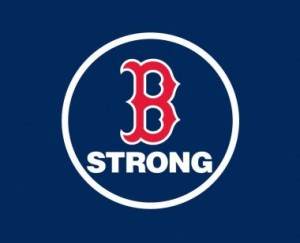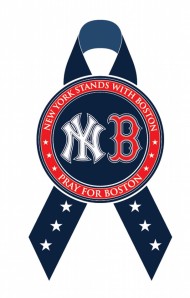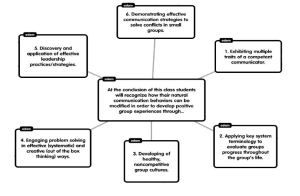It has been a while, but I am glad to share great news with you as I begin to make further updates to my leadership portfolio over the coming months. Since freshman year, I have experienced many challenges and I continue to take advantage of every opportunity.
Upon arriving to Central Michigan University in the fall of 2012, I have made many changes to where I want to be following college. When I walked away from the final stage of scheduling at my freshman orientation, I had a typical schedule for a first year student with a major in political science. In addition to my campaigns and elections course, I was enrolled in competency and university program courses plus one other considered to be an elective: IPR 101.
I enrolled in IPR 101 after my good friend Rachel Quinn had showed me the course description. She encouraged me to take the class because she knew I was a communicator. Since the class was one credit and required no exams, I gave it a shot. I didn’t know what to think after the eight weeks were complete, but I ended up leaving my freshman year with a new major with the expectation of a future career in in public relations.
As I continued to take more courses, I gained interest in what public relations had to offer. In addition to my leadership minor, I spent my sophomore year taking 15 credits toward the completion of the Undergraduate Certificate in Social Media through CMU’s Global Campus. This provided me with additional PR experience and landed me a job as the social media coordinator of CMU’s Leadership Institute. This position has allowed me to combine my skills with my passions here at CMU.
As my sophomore year went along, I began to get a little uneasy with PR. While I enjoy writing and the various other communication tactics associated with the industry, I did not discover a passion for it. I started to slack off in many of my academic courses and put all of my time and effort into the many experiences I was involved in outside of the classroom. Upon many conversations with friends, peers and professionals at the university, I came to realize a career in student affairs is right for me.
I take pride in what I am able to do here at CMU outside of the classroom. I am honored to have had so many phenomenal mentors guide me in the right direction as I work to live and lead a life of integrity. I have come to realize the time is now to pass along these attributes to other students.
I am currently putting the finishing touches on my college experience so I will be prepared to take on an assistantship at the graduate level following my time at CMU. I have attended student affairs conferences to learn what it takes to lead in higher education and I am looking at many student development related positions to continue my education with.
Although I am no longer pursuing a career in public relations, it’s not going anywhere. I am working to showcase the many transferrable skills this major has provided me with. I am aware of instances in my professional career where I will have to serve as a communicator, a spokesperson and a writer for my university and I accept the challenge. My current internship with University Communications allows me to further my public relations experience while also working closely with a university community I am very passionate about. I cannot wait for the next step of this journey to begin.
Current Events: Patriotism Through Professional Sports
The acts of terror that have taken place in the city of Boston this week are sincerely troubling. When events such as these do occur it is important for the nation to remains strong and united as one and support all of those who were involved in the incident as well as recognize all of those who had a positive impact by saving lives and bringing up those who have fallen around them.
I am amazed by the amount of support that the professional sports leagues, their teams, and their athletes have shown towards the city of Boston. Though they are often enemies on the field, court, and rink, teams did not hesitate to show their support. Today each of their teams played (the Red Sox, Celtics, and Bruins) and there were pre-game ceremonies to show support for the city as well as the law enforcement teams that were able to keep Boston Strong.
I would like to specifically focus on the actions of Major League Baseball and the Boston Red Sox. During the national anthem of before the game, every single person in Fenway Park was on their feet, with their hand over their heart, singing our song to show true patriotism. During the pre-game ceremony a few players spoke and showed the fans as well as the country that nobody messes with their city. Rather than wearing their traditional home jerseys that say “Red Sox” on them, the name of their city went across their chest in pride. In the 8th inning, Neil Diamond himself made a live appearance to join the crowd in their traditional singing of “Sweet Caroline.” Even the New York Yankees, the rival of the Red Sox, played the song during their game showing that they too have support for the city. As a sports fan, it makes me so happy to see the athletes, their teams, and their fans show the support that they did today. The red Sox went on to win a game that will be remembered.
Protocol Reflection #3: COM 353 Small Group Communication
Many Leader Advancement Scholars argue that the courses required for the scholarship protocol do not incorporate leadership into the curriculum. For example, during my experience in COM 267L I was not exposed to anything relating to leadership. I also did not learn a lot in the class and would have completed my oral competency with my public speaking course as an IPR major. I would like to see a class such as COM 353 Small Group Communication in replacement of this course.
In COM 353, I have learned about communication competency and how it relates to small group culture. Rather than doing a single debate and learning about rhetoric, I would like to take a class like this that covers communication competency, leadership, problem solving, and group culture. The skills taught in this class relate to live skills we will use not only as LAS students on campus but also in our professional careers.
Class Objectives:
Outreach to Teach-Pullen Elementary Service Day
On Sunday, April 7 students involved in CMU’s Student Michigan Education Association (SMEA) gathered volunteers together to make Pullen Elementary School in Mount Pleasant a better place for students to learn. As a member of the Leader Advancement Scholar Volunteer Lead Team and a service learner in LDR 200L: An Introduction to Leadership, I spent eight hours painting the main office of the school. The experience provided me with the opportunity to interact in service learning with fellow members of my LAS cohort as well as students in the classes above me. Christina Proulx served as our site leader and was able to distribute tasks to the individuals in our group.
It was a rewarding experience to be able to have a positive impact on a school in the Mount Pleasant Community. This was my first time volunteering at a school in Mount Pleasant and I would love to find a way to get involved in a program that would allow me to interact with the kids. Though I feel as if I made a positive difference in the school because of the improvements to the building, I would have enjoyed working with students.
I was disappointed to have had to miss the Detroit service learning trip with my LAS cohort because of the remarkable experience that they were able to have. I heard many great stories and saw many pictures as they returned and I wish I could have been part of it all. I am from the Detroit area and have volunteered in the city before and would have loved to have gone to facilitate with Detroit students as well as work with non-profit organizations that help out the city. I am, however, glad that I had the opportunity to get involved in the local school system because it has inspired me to seek out future opportunities to volunteer with students and the educations system. I truly value service learning and hope that it can be better implemented into curriculum at Central Michigan university.
The Art of Community Service and Leadership-Brian Pruitt
On Wednesday, April 10 the students of Jesi Parker’s LDR 200L course had a special visit from CMU alum and Leader in Residency, Brian Pruitt. Brian graduated from CMU with a degree in communication and later worked in the banking business. He soon discovered his passion as he left the bank to work for the juvenile system focusing on young men who had committed high-profile crimes. In addition, he has served as a youth pastor at a Detroit church where he has worked with inter-city children.
Brian had noticed that many of the young men he had met through the juvenile system as well as through his ministry had not had fathers present in their lives. As a father himself, he knows the importance of having a male role model and many of these kids lacked that in their loves. Brian did not hesitate to turn his passion into action as he created the non-profit organization, “The Power of Dad”. The organization housed in the city of Saginaw focuses on young men ages 13-18 who do not have a father in their life. During a 9 month period, these young men are taught many skills that they father never taught them such as tieing a tie, taking care of their loved ones, etc. They have the opportunity to connect with other children as well as gain male role models in their lives. Brian teaches these boys that it is important to forgive their fathers, carry on, and work on becoming a better man than their fathers were. After their 9 months, the group goes through a graduation ceremony.
“We make a living by what we make but we make a life by what we give.” Brian used this Winston Churchill quote to describe his view of service through leadership. He mentioned, “Whatever you do, let it matter.” As servant leaders, it is important that we find out own ways to serve the world around us. I thoroughly enjoyed listening to Brian speak and I believe that he truly demonstrates servant leadership.
Brian Provided 5 steps to get involved in community service:
1. Find a Need
2. Get Informed
3. Get Involved
4. Walk in Integrity
5. Get Others Involved
“The best way to find yourself is to be yourself in service to others.” -Ghandi
Leadership Practices Inventory-Initial Reaction
Over the past few weeks, students in LDR 200L have been evaluated about their strengths and weaknesses with Kouzes and Posner’s Five Practices of Exemplary Leadership through the Leadership Practices Inventory. Each of us had evaluated ourselves, as well as have 7-10 other leaders we work closely with evaluate as from their point of view. This has been a wonderful opportunity to seek out feedback and see which areas I am able to improve on.
Based off of what I know about my leadership practices, this is how I predicted things would play out, from strongest to weakest:
1. Inspire a Shared Vision
2. Model the Way
3. Challenge the Process
4. Encourage the Heart
5. Enable Others to Act
Based off of the results I received from 10 observers, here were my results:
1. Inspire a Shared Vision
2. Enable Others to Act
3. Model the Way
4. Challenge the Process
5. Encourage the Heart
After viewing these results initially, I was slightly surprised to see the ranking of the items. I am glad that others believe that I am doing a good job at enabling others to act because I have been working on that over the past few months. Many of the scores that I had chosen for myself were higher than what others ranked me as. I feel good about this because it shows that my confidence is improving and it challenges me to work on a few specific things that would assist in bringing those scores up. I am thankful to have had the opportunity to take this assessment and I look forward to implementing positive change in the ways I lead others.
Protocol Reflection #2: Alpha Leadership Experience
Alpha is a five-week leadership development program that takes place weekly to help student leaders create their own definition of leadership, discover their own leadership style, and work well in a team setting. I was a member of Team Tiger with facilitators Jen Drum and Brandon Wilmont. I was shocked to find out that my leadership style was one of an extrovert because I have always found myself to be a very accurate, systematic leader. The week overall became a challenge because I had already experienced many of the activities and did not want to ruin it for my other group members. I did a great job in stepping back and allowing others to lead and actively participate in conversations and debriefing. At the end of the program, I had enjoyed myself and Team Tiger and was eager to apply to be a facilitator for the spring sessions. As a current facilitator for the program, I have had an amazing four weeks. I serve alongside Kristin Turbiak as a facilitator for the Blue Crew. This has been a new experience for me because I am used to facilitating students at the high school level and now I am moving up to working more with my peers who are at similar maturity levels as I am. Rachel Roe, Maggie Blackmer, Becca McBryde, and Michael Snider are all LAS classmates of mine that are participants in the program and are also members of the Blue Crew. At times, this has been a challenge for me as I try to mentor my own peers through the various aspects of the program. I have enjoyed meeting many new students and establishing new connections with others around campus. Each member of the Alpha Team is a blast to work with and I hope to remain active with the program for years to come.
Protocol Reflection #1: Introduction to Leadership
During the Spring Semester of our freshmen year, Leader Advancement Scholar students are required to take LDR 200L, an Introduction to Leadership with our cohort. This year’s course is taught by Jesi Parker, the Assistant Director of CMU’s Leadership Institute. Jesi is assisted by fellow LAS student and Teacher’s Assistant, Zack Kowalski. LDR 200L is designed to provide the members of LAS with the opportunity to not only learn about the various theories and approaches to leadership but also become closer at the same time. Ms. Parker has set up the class so that we learn primarily through each other by the facilitation of various workshops and initiatives in assigned teams. I thoroughly enjoy this approach to teaching because I am able to see the various points of view as well as different presentation and facilitation styles of my classmates. These assignments provide an interactive, hands on aspect to our class that many other classes on campus do not have. In the month of March, the class will embark on a journey to the city of Detroit to conduct community service in an underprivilaged public school. By the time I leave the class, I expect to not only have a better understanding of the various leadership theories but also have an abundance of resources including team initiatives, an electronic portfolio, and a personal leadership development plan. I really enjoy attending this class on Wednesdays because it is the only class that I have with my fellow LAS classmates. I enjoy time spent with them and they are some of the best students to work with in groups. I am impressed with the way Jesi and Zack have set up this class and look forward to what is yet to come over the next eight weeks!
COM 353 Approaching Leadership
The above link hosts an assignment from my Small Group Communications class. We are beginning a discussion of leadership starting with the different approaches people take to defining and understanding what leadership truly means. This relates heavily to what we are discussing not only in LDR 200L, but also the Alpha Leadership Experience where I worked with my participants to come up with their own definition of leadership. In today’s session we discussed the various leadership styles and participants had the opportunity to discover which one best defines them. I look forward to further discussion on leadership theories and approaches in both of these classes.
Ted Talks Reflection: Everyday Leadership
Ted Talks Reflection: Everyday Leadership
Attached above and written is one of the first assignments from Jesi Parker’s LDR 200L course, a Ted Talks reflection. When viewing this Ted Talks video called Everyday Leadership, I took some time to reflect on how a simple deed to reach out to someone can make one a leader. You do not need a title or power to have influence on others. It reminded me of how leadership is much more than a concept we learn about at school and sometimes talk about-it is a lifestyle.
Ted Talks: Everyday Leadership
Leadership is a never ending process; it never sleeps. One who labels themselves as a leader is someone who lives leadership as an everyday lifestyle-not merely someone who has the honor of having a title in front of their name, specific duties or power, or makes themselves known in history. Ted Talks’s speaker Drew Dudley explains how an average person can be a leader without having to change the world. He stresses the importance of showing others that they have made a difference on your life and explains how much of an effect the simple recognition could have on them. If we make leadership something beyond us, then we give ourselves excuses not to accept it from ourselves and from others. We need to focus less on money, power, titles, and influence and more on the little things that can make someone’s day.
He began by telling a short story about the intimidating night before a girl’s first day of college. She had a feeling that she could not live on her own and was terrified to begin her college career, begging her parents to take her back home. Drew inspired a young man to extend her a sucker welcome to her new home, causing the woman to feel more comfortable knowing that there were friendly students on campus. She walked up to Drew four years later and thanked him for having such a positive impact on her life. Years later, Drew received an invitation to their wedding and was reminded of his simple act that he had not realized had such a huge impact. This is relevant to student leaders like me because it is important for us to realize what everyday leadership is and how we can embed it into our daily lives. We have the abilities to take simple actions and make a difference with friends, family, or even complete strangers on our campus, in our community, and in the world around us. I strongly agree with Drew’s message, however, I do not believe that it as simple as he makes it seem. Living leadership as a lifestyle is a challenge that many take on but often struggle to cope with. Especially in college, students strive to stay true to themselves and their values as they are faced with many difficult decisions. What is important is that they focus on their goals and aspirations for what they really want to accomplish over their years at a university filled with so much opportunity.
Ted Talks: Evreyday Leadership
When discussing new leadership concepts such as Dudley’s “Everyday Leadership”, many forget to reflect on what is really important: the next steps one must take to put this fresh idea into action. Since this is not my first time learning about this concept, it has become a notion that I work on in my daily life. Now what exactly can one do to show “everyday leadership”? It can easily relate to Drew’s example or be a completely dissimilar idea. It is up to the leader to choose the actions that best adapt to their personality and their leadership style. Those who are more introverted may not choose to personally approach someone and play a huge vocal role, however they may choose to modestly smile at someone they see who may be having a rough day or send a card to someone who is ill or suffering in some way. Since I am very extraverted and outgoing, I try to provide compliments to others in addition to lending a helpful hand when others are in need. When I have gone out of my way to help other person I have shown that anyone can lead. By inspiring others to become involved in campus and in the community I lead them to better success not only for themselves and their organization but for others who are positively affected by their hard work and involvements. Often times at night before I rest I ponder on the thought, “Have I acted as a leader today?” I evaluate myself frequently and discover what more I can do to not only continue these actions for myself but enthuse others to take on parallel challenges. Live a life of leadership-not today, not tomorrow, but every day. In its essence, leadership is a lifestyle, not a position.






